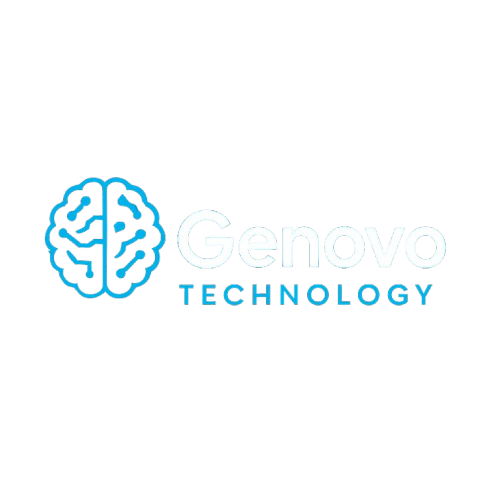It’s hard to keep up with the rapid changes in technology, market demands, and customer expectations. It can be like juggling flaming blades while running a race. You’ve probably been overwhelmed by repetitive tasks, slow decisions, and customer service that cannot keep up, whether you are running a company, scaling a new startup, or trying to outpace your competitors.
AI applications aren’t just buzzwords anymore. They’re already changing the way smart businesses work every day. AI is capable of automating tedious admin tasks and analyzing large datasets within seconds.
AI-powered solutions have helped us help brands improve ROI and streamline operations. We also deliver a faster, more intelligent service. This article will show you how AI is transforming industries. You’ll also learn how companies are using it and how you can tap into the intelligent advantage.
Let’s dive in and see how everything works. No hype, only real results.

Why AI Applications Matter for Businesses
An application is a software system that uses artificial intelligence to learn, reason, and make decisions.
Why should you care about HTML0?
Smart automation is no longer optional. It’s now a competitive advantage. AI can give you superpowers when customer attention spans are limited and data is awash. You’ll get faster response times, more intelligent strategies, and results based on data without burning out.
AI companies have reported:
- Increase in productivity by 40%
- Reduced customer support costs by 30%
- And 2X faster decision-making
Benefits can be realized without massive infrastructure. You only need the right approach and the right use cases.
Top AI application use cases by industry
Here’s a breakdown of the industries where AI is having the most impact.
Healthcare & Pharmaceuticals
AI helps doctors diagnose diseases faster and earlier. Diagnostic AI tools, for example, can analyze X-rays and pathology reports within seconds. Pharmaceutical companies can also use machine learning models to forecast drug demand and accelerate R&D cycles.
Think about an AI-powered system:
- Detect diabetic retinopathy using retinal scans
- Analyze the patient’s history for prevention care suggestions
- Accelerate drug development using predictive models
It’s not the future, it’s now.
Finance & Banking
AI is always on the lookout for fraud. AI applications for finance can spot suspicious transactions faster, approve loans more quickly, and personalize services.
Key examples include:
- Real-time fraud detection systems
- Robo advisors for investment
- Credit scoring using alternative data
Chase, Capital One, and other banks are already using AI in order to stay ahead of the competition.
Retail & E-Commerce
AI powers e-commerce platforms in the background. From predicting your next purchase to managing inventory automatically, AI drives ecommerce platforms. Chatbots answer questions, and recommendation engines increase cart sizes.
Examples:
- Personalized product recommendations
- AI Inventory and Supply Chain Forecasting
- Dynamic pricing according to market trends
Shoppers expect smart experiences–AI delivers.
Manufacturing & Supply Chain
Imagine being able to predict the failure of a machine before it occurs. AI-powered systems can do that. They optimize logistics, manage supply chain risks, and improve production quality.
Use cases include:
- Predictive maintenance in factories
- AI routing for logistics efficiency
- Quality Control using Computer Vision
AI results in less downtime and more uptime, as well as better margins.
Marketing & Advertising
Spray-and-pray is dead. AI can make campaigns more intelligent by analysing audience behavior, optimizing the content, and automating the ad delivery.
Marketers use AI to:
- Customer sentiment and trends analysis
- Generate dynamic ad creatives
- Run A/B tests automatically at scale
What is the result? The result?
Education & Tutoring
AI revolutionizes learning. It offers real-time feedback, adapts to the pace of each student, and autogrades assignments.
Now used by schools and platforms:
- AI tutors to provide personalized instruction
- Smart grading systems
- Using learning analytics to improve teaching methods
Teachers save time and students get better results.
Customer Service & Chatbots
Customer service is not only available from 9-5. AI chatbots are available 24/7 to solve problems or direct customers to human agents.
You’ve probably already used:
- AI chatbots such as ChatGPT for FAQs
- Voice Assistants for Call Center Automation
- Tools for Sentiment Analysis and Escalation Detection
Customer satisfaction is a win-win situation. So do your support costs.
Are you ready to start?
Let’s set up a free consultation or demo, customized for your needs. Contact us now or visit our services page to get started!
Emerging Trends in AI Applications
Things are changing fast. Let’s discuss the latest AI trends that are making headlines.
Generative AI
ChatGPT and DALL-E are just a few of the tools that show what generative AI is capable of. They can write, draw, and create at will. It is changing the way businesses create content, develop products, and write code.
Agentic AI / Autonomous Agents
Now, AI agents are able to complete tasks without constant oversight. These bots can read emails, schedule meetings, enter data, and make decisions based on goals.
Businesses use agentic AI to:
- Handle admin tasks
- Automated lead follow-up
- Manage workflow coordination
Predictive Analytics & Automation
Forget reacting–start predicting. AI applications can now predict sales, spot churning before it occurs, and fine-tune operations automatically.
It’s like having an online business crystal ball powered by data.
How to Implement AI Applications in Businesses
AI applications aren’t only about software. A clear plan is needed.
- Data Strategy and Planning
What is the first step? Sort out your data. AI requires clean, relevant, and useful data. Start small and define your goals, then build on that.
- Tool Selection & Development
AI tools are not all created equal. Select solutions that are aligned with your business. AI agents are available to perform specific tasks, such as email analysis, data sorting, or customer segmentation.
- Integration & Rollout
Do not implement AI in your business at once. Start by implementing a pilot. Train your team and track results. To make integration easier, use APIs and cloud-based services.
Real-World Examples of AI Applications in Action
Here is the real deal:
- Uber uses AI to set prices dynamically and match riders.
- Wendy’s tests AI drive-thru voice ordering.
- Mercedes integrates AI into vehicle personalization.
- JPMorgan uses AI for the analysis of legal documents in seconds.
- Google uses AI for diagnostics, such as detecting eye diseases from scans.
AI is not just hype. It’s useful and profitable.
Challenges & Best Practices in Adopting AI Applications
No tool is perfect. What to look out for
- Data Quality Issues Can Mess Up Predictions
- Bias in AI models can create unfair outcomes.
- Transparency and trust are important, especially with customers.
- Change Management: Your team must understand and trust your system.
What is the best practice? Start small. Start small. Scale up what works.
Comparison Table: Common AI Applications Across Industries
| Industry | Example AI Application | Primary Benefit | Popular Tools/Platforms |
|---|---|---|---|
| Healthcare | Diagnostic image analysis | Faster and more accurate diagnoses | Google DeepMind, Aidoc |
| Finance | Fraud detection & credit scoring | Real-time alerts and risk reduction | IBM Watson, Kount |
| Retail & E‑Commerce | Product recommendations | Increased sales and customer satisfaction | Salesforce Einstein, Bloomreach |
| Marketing | Dynamic ad targeting | Better conversion and ROAS | Adzooma, Persado |
| Manufacturing | Predictive maintenance | Reduced downtime and cost savings | Siemens MindSphere, SparkCognition |
| Education | Adaptive learning platforms | Personalized learning experiences | Squirrel AI, Querium |
| Customer Service | AI chatbots | 24/7 support, faster resolutions | Intercom, Tidio, ChatGPT API |
FAQs about AI Applications
1. What is AI in simple terms?
AI applications are software programs that use artificial intelligence (AI) to perform tasks that would normally require human intelligence, such as decision-making, pattern recognition, or language understanding.
2. What are the AI applications that businesses use today?
AI applications automate tasks and improve efficiency while generating data-driven insights.
3. Do I need to know coding to use AI applications?
Not necessarily. Many AI tools don’t require any code. However, more advanced implementations–like building custom AI agents–may need developer support.
4. What industries are most likely to benefit from AI?
AI applications have led to major productivity and efficiency gains in industries such as healthcare and banking.
5. Is AI expensive to implement or use?
Costs can vary. Small businesses can afford AI tools that are available off the shelf, but custom solutions may require a larger budget.
Conclusion
It’s not a question of whether AI will change the business landscape. They are already. It’s all about how quickly you act. Businesses that adopt AI now will not only improve their operations, but they’ll also future-proof themselves.
AI applications can help you run your business more efficiently, smarter, and faster. The technology is ready. The tools have been tested. Grab the advantage.

One Response